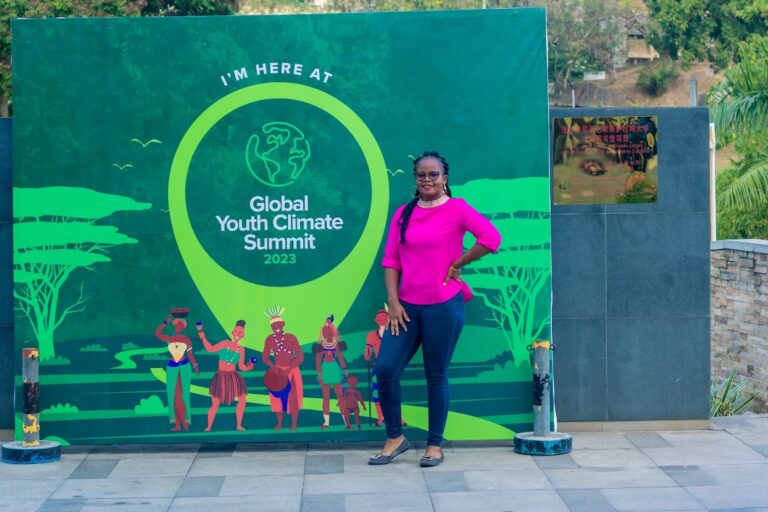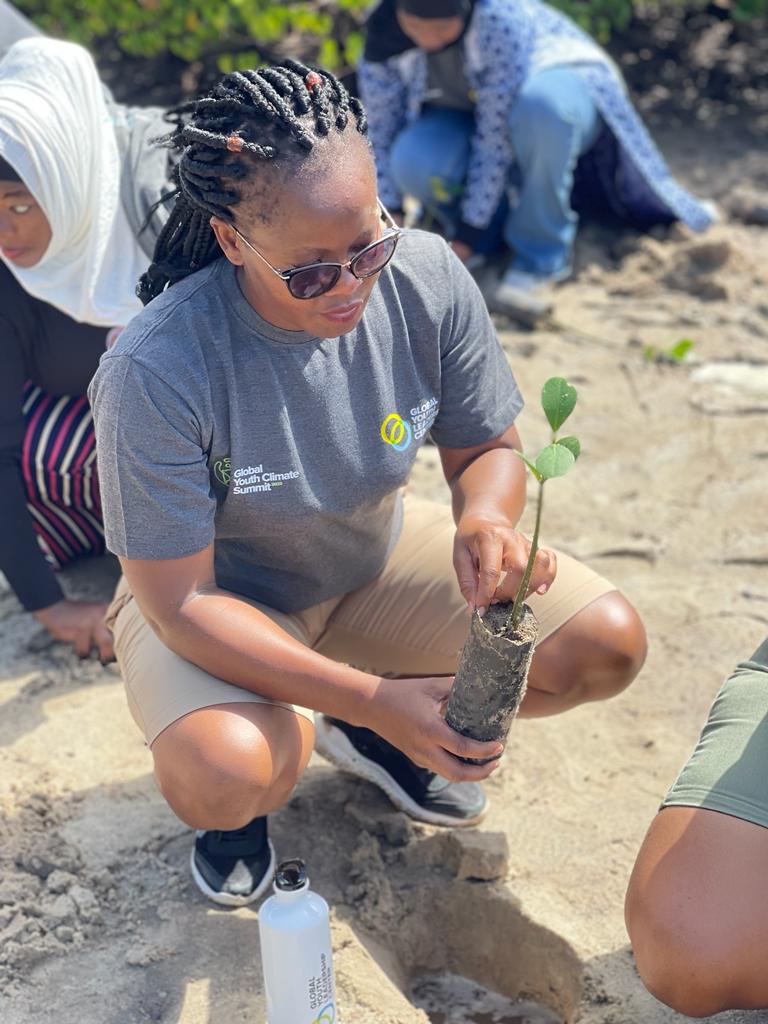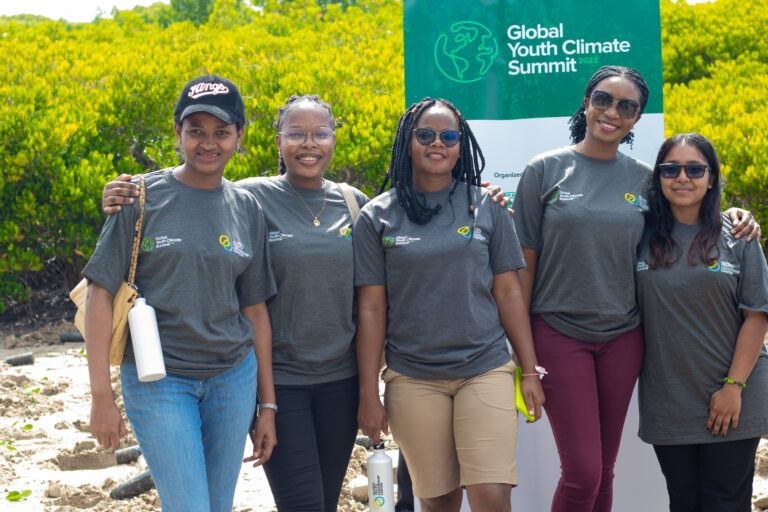As an AFAS fellow at the University of Nairobi, I had the privilege to be a delegate at the Global Youth Climate Summit from 4th-7th October, 2023 which took place at the University of Dar es Salaam, Tanzania. During the summit, I contributed to the critical dialogue and action-oriented initiatives addressing climate change adaptation and biodiversity conservation where I emphasized on rangeland restoration through establishment of grazing management, pasture establishment and coastline restoration through Mangrove plantation. This relates with AFAS core aim as a beacon of innovation, weaving together scientific expertise with policy and practical applications in climate change and biodiversity conservation with focus on nature-based solution in Africa’s Savannas. My focus on the positive impacts of rangeland and mangrove restoration has been integral to the collective effort in co-producing actionable outcomes. AFAS has strived to bridge the gap between science, policy, and practice, fostering capacity development and implementing solutions that resonate with both the public and private sectors.” The Global Youth Climate Summit unfolded, uniting 200 delegates in person and another 300 virtually from across 24 countries. This four-day event was organized in partnership with the Tanzania Forest Service Agency, Ministry of Natural Resources and Tourism and the Institute of Resource Assessment, University of Dar es Salaam, that brought together 500 changemakers from around the world, strengthen their knowledge about climate science, build their leadership skills, and provide small grants to enable them to launch climate action projects in their communities. an adventure that illustrated the remarkable power of youth in combatting climate change.

Day 1: October 4, 2023 – “No Time to Waste”
The summit commenced with an electrifying opening ceremony and a plenary session titled “No Time to Waste.” Here, the eager delegates were warmly welcomed by Professor Joel Nobert, Director of the Institute of Resource Assessment at the University of Dar es Salaam, and Dr. Ejaj Ahmad, the CEO & Founder of the Global Youth Leadership Center.
Day 2: October 5, 2023 – Leading in Times of Crisis
The second day dawned with a thought-provoking discussion led by Dr. Ejaj Ahmad, focusing on “Leadership in Times of Crisis.” Delegates from different corners of the world shared their insights on the most effective leadership styles during turbulent times.
Following these eye-opening conversations, the day was dedicated to workshops conducted by Ashoka East Africa. This workshop was designed to emphasize the power of storytelling as a tool for change-makers. Which resonates with AFAS theme of the science -policy interface through informing people on the best practices of the available scientific methods as well as policy makers. Storytelling, a cherished tradition in Africa, has been used for generations to pass down wisdom, knowledge, and culture. It’s also a potent instrument for conveying the urgency and impact of climate change.
The evening brought a beautiful culmination to the day in the form of a cultural night. Delegates proudly showcased their unique ways of life, cultures, and traditions. As they danced, sang, and shared stories, the ties between them grew stronger, transcending geographical and cultural boundaries.

Day 3: October 6, 2023 – Taking Action for a Greener Future
Day three was the summit’s highlight as it provided a hands-on experience for the delegates to take collective action. In the morning, they joined hands with local communities and the Ministry of Forestry to engage in a critical activity by planting mangrove long the Kunduchi Coastline. Mangroves, nature’s shield against coastal erosion, were given a new lease on life, highlighting the global youth’s commitment to ecological conservation.
Next, the delegates embarked on an excursion to the Pugu Kazimbuzwi National Reserve. Here, they were treated to an exclusive encounter with Tanzanian culture through vibrant dances and soulful songs. They experienced an authentic bush lunch, enjoying regional delicacies amidst the beauty of nature. The adventure continued with hiking, cave exploration, and kayaking, connecting the delegates with the essence of the Tanzanian wilderness.
Day 4: October 7, 2023 – Pledges, Promises, and Progress
The final day of the summit was a culmination of ideas and commitments made over the previous days. Delegates reaffirmed their unwavering dedication to climate action, culminating in the formulation of the Dar es Salaam Youth Climate Declaration. This crucial declaration pinpointed four priority areas for the global youth collective and I am glad to have contributed to Access to Climate financing topic as part of the Declaration.

The full declaration includes:
The summit wasn’t just a gathering of bright minds; it was a rallying cry for a generation that refuses to let climate change define its destiny. The Global Youth Climate Summit 2023 in Dar es Salaam illuminated the path forward. It was a testament to the power of unity, determination, and youthful spirit in the fight against climate change. As the summit came to a close, the delegates departed, not as individuals from diverse backgrounds, but as a global family committed to nurturing our planet. The echoes of their promises continue to resonate, reminding us all that there truly is “No Time to Waste” when it comes to securing a sustainable future for generations to come.
Information about the author:
Millicent Atieno Philip is an AFAS fellow from the 1st master cohort based at the University of Nairobi in Kenya.
(millicentphilips[at]gmail.com / millicent.philip[at]students.uonbi.ac.ke)